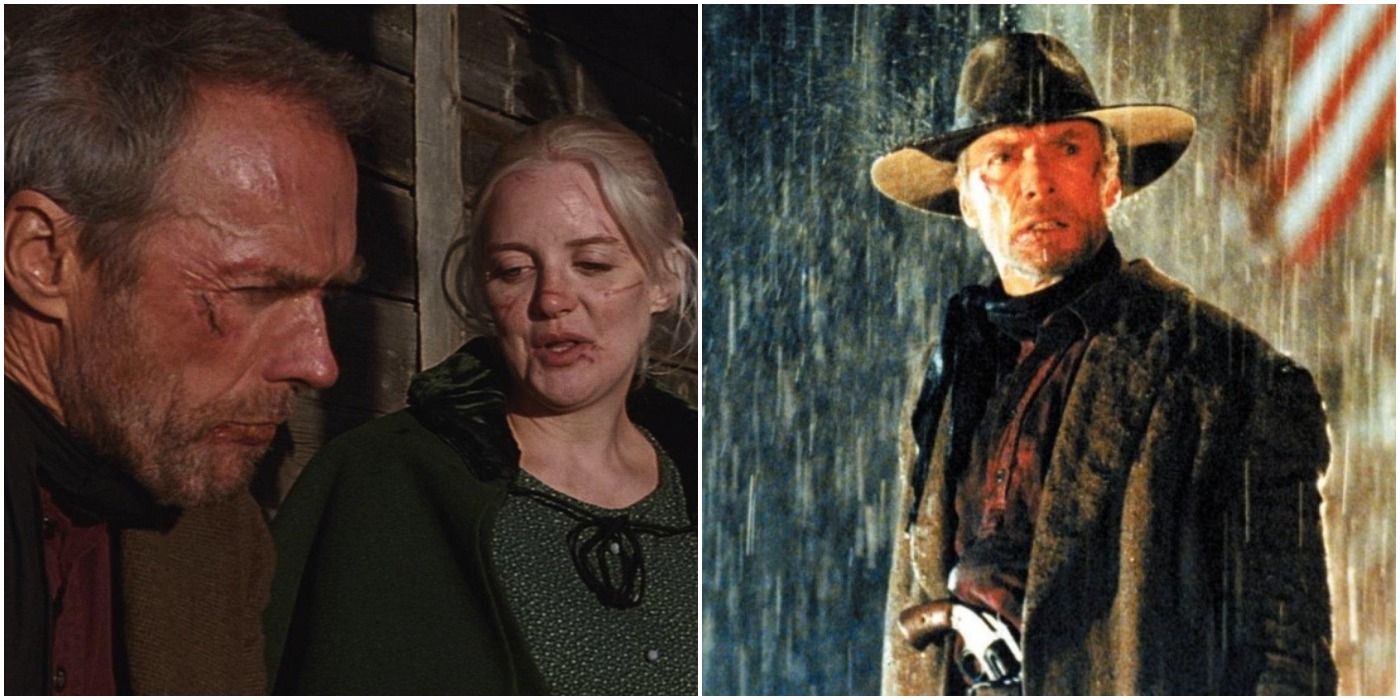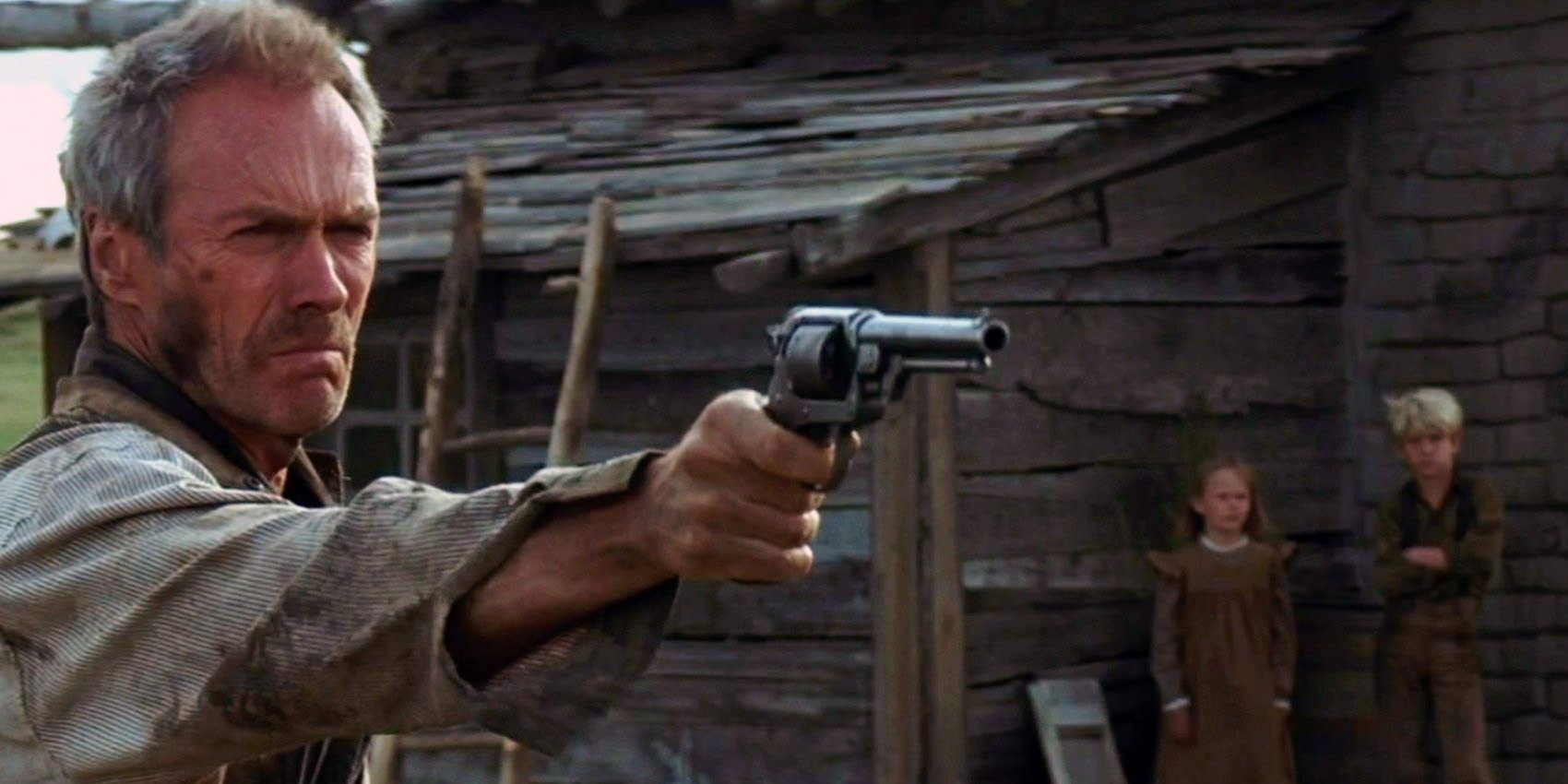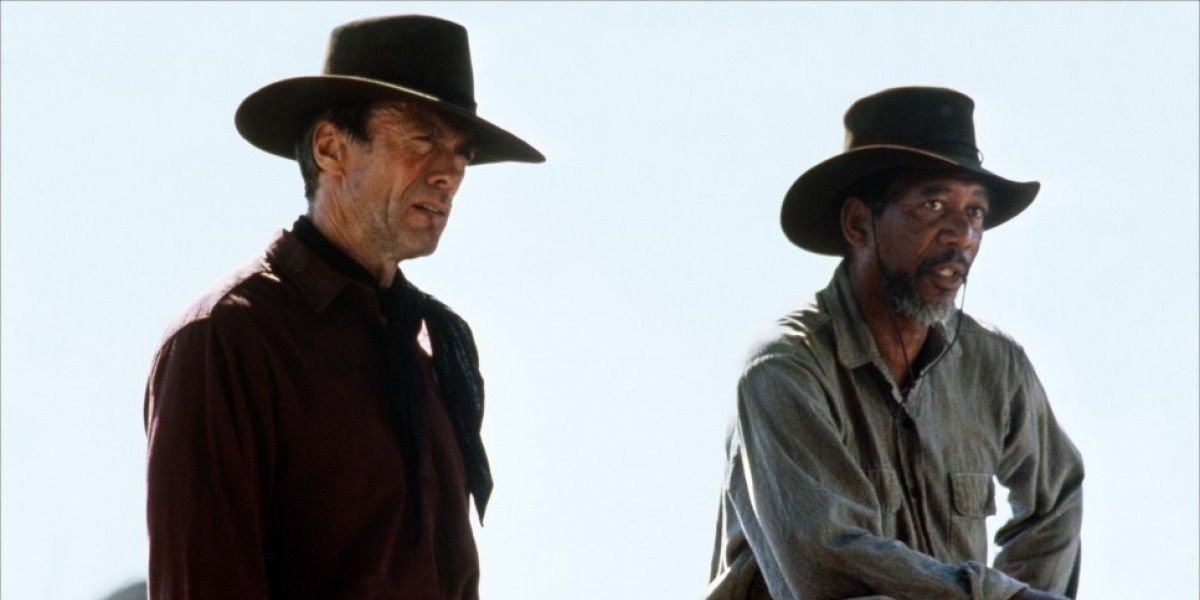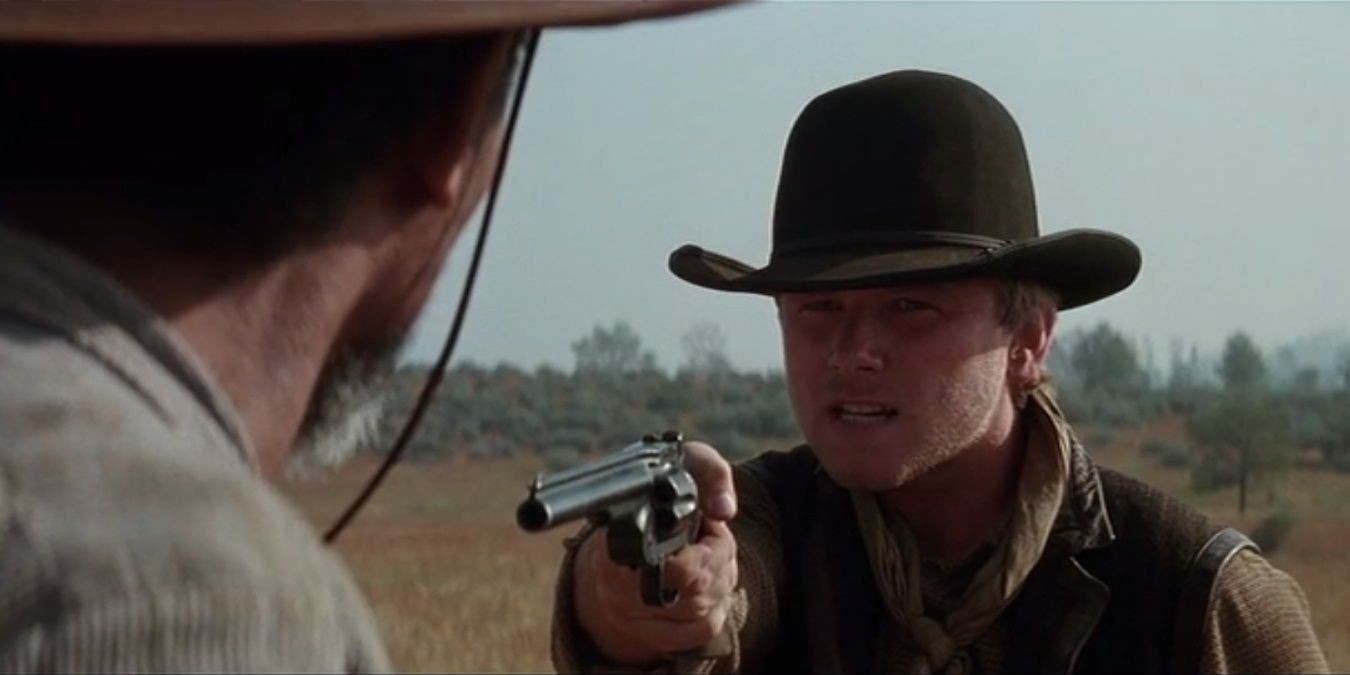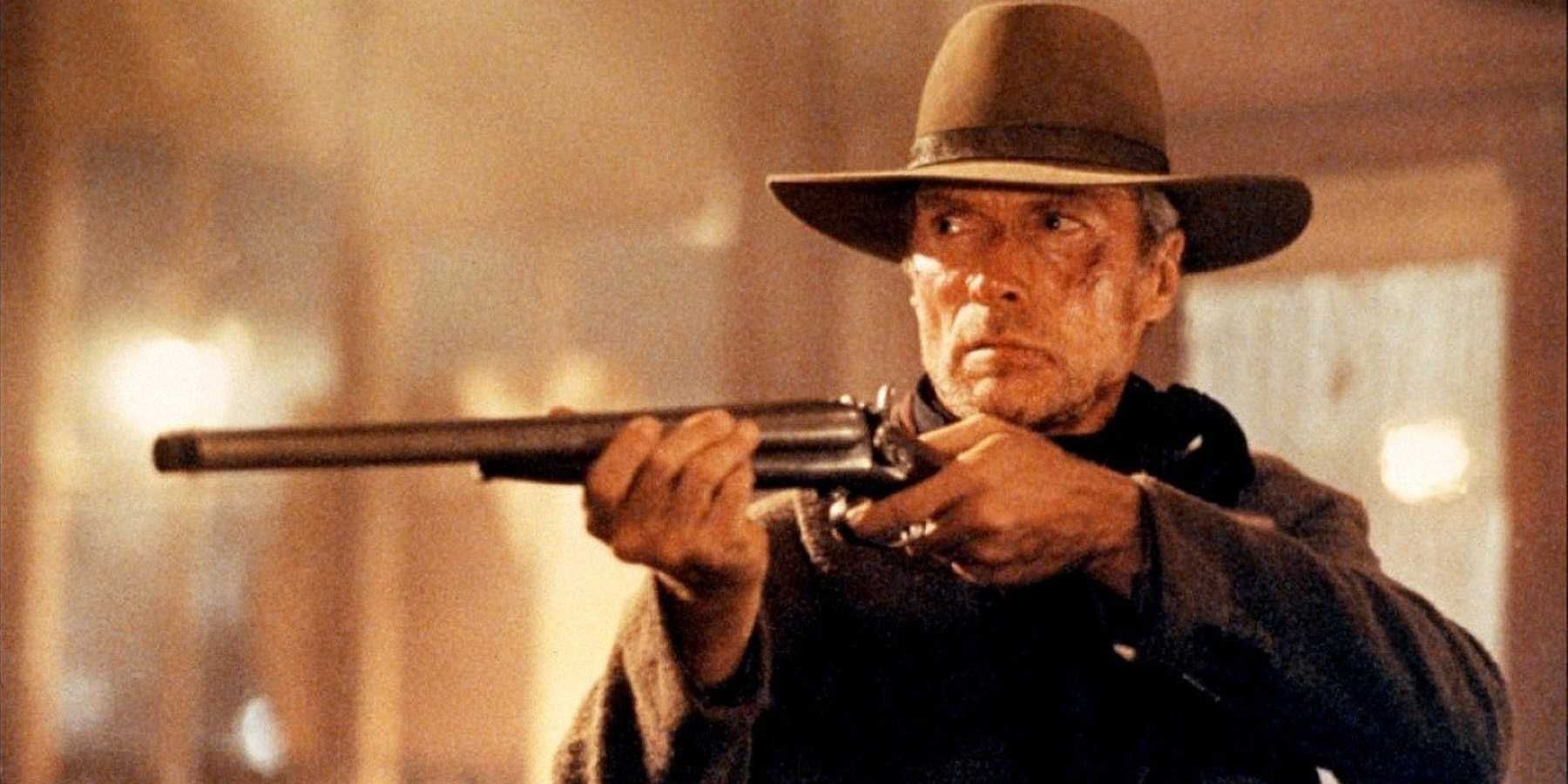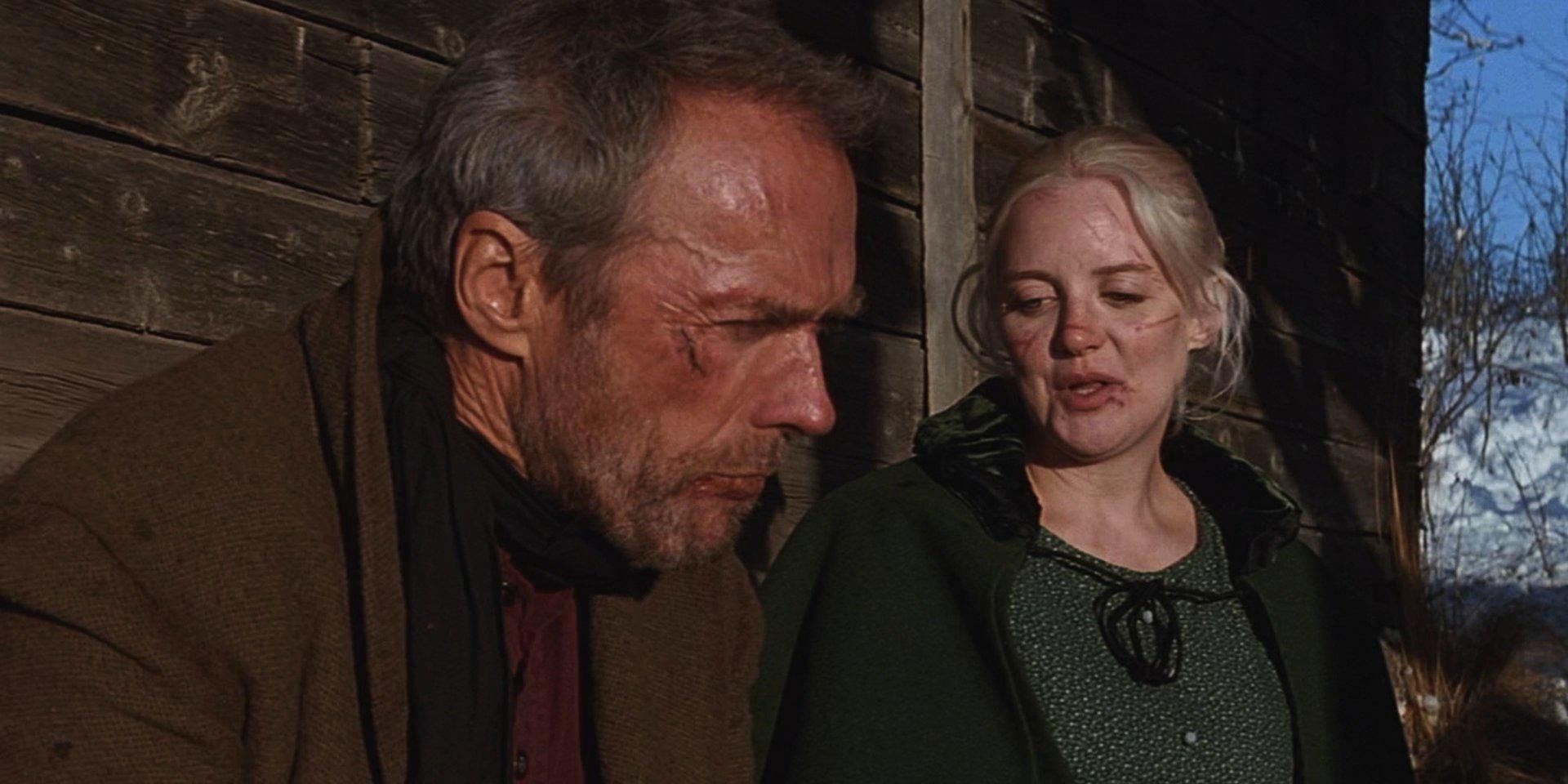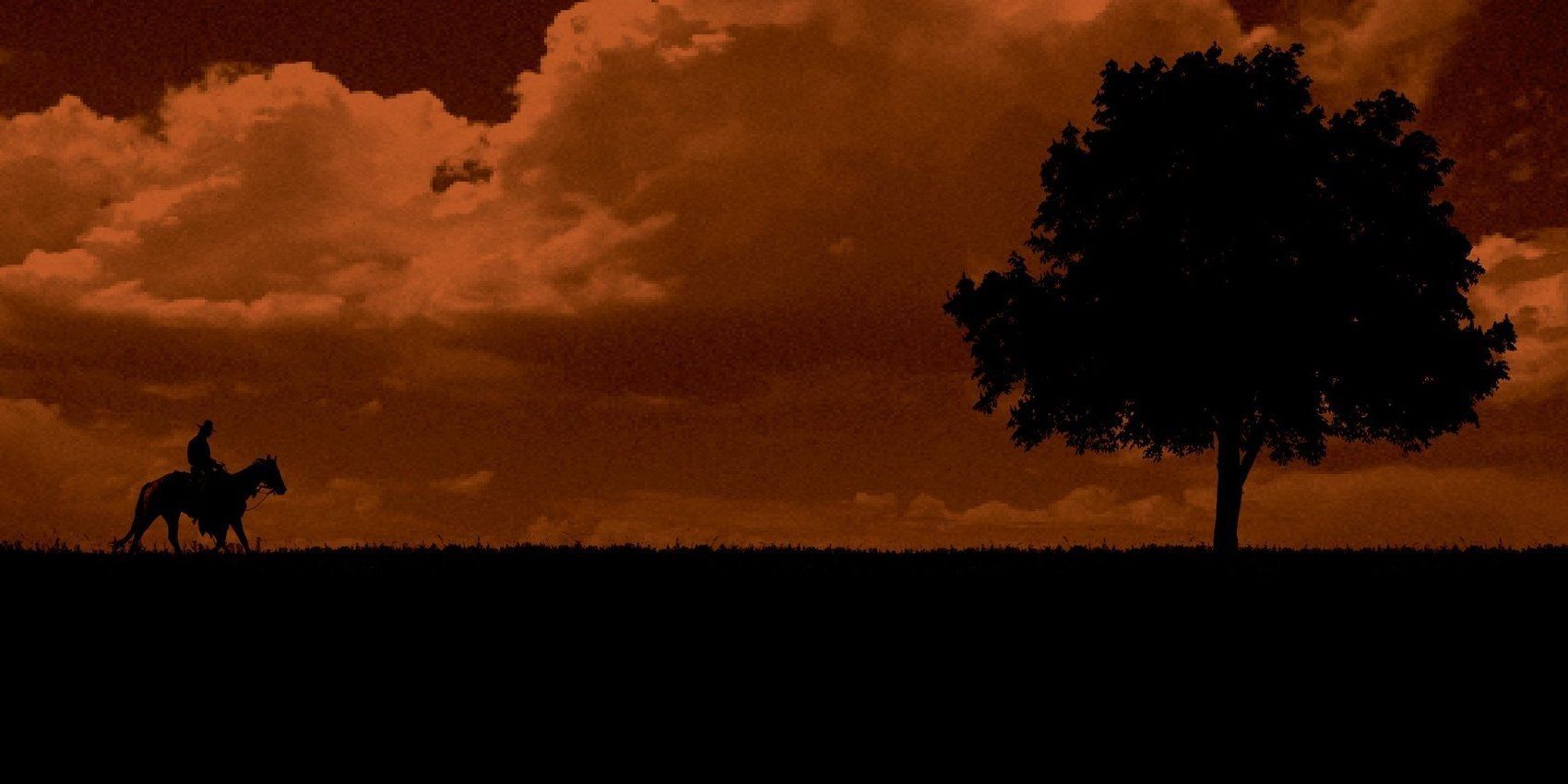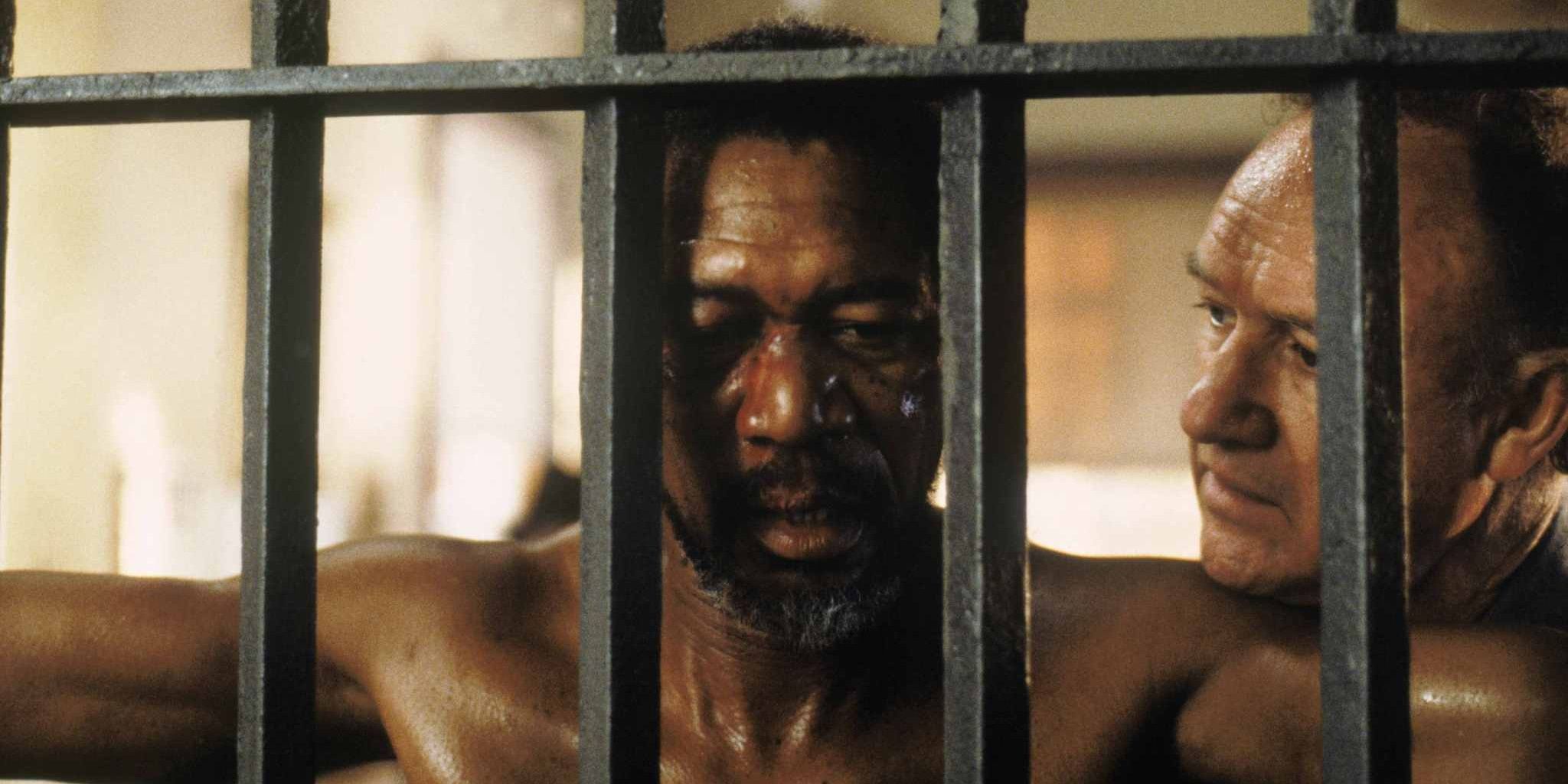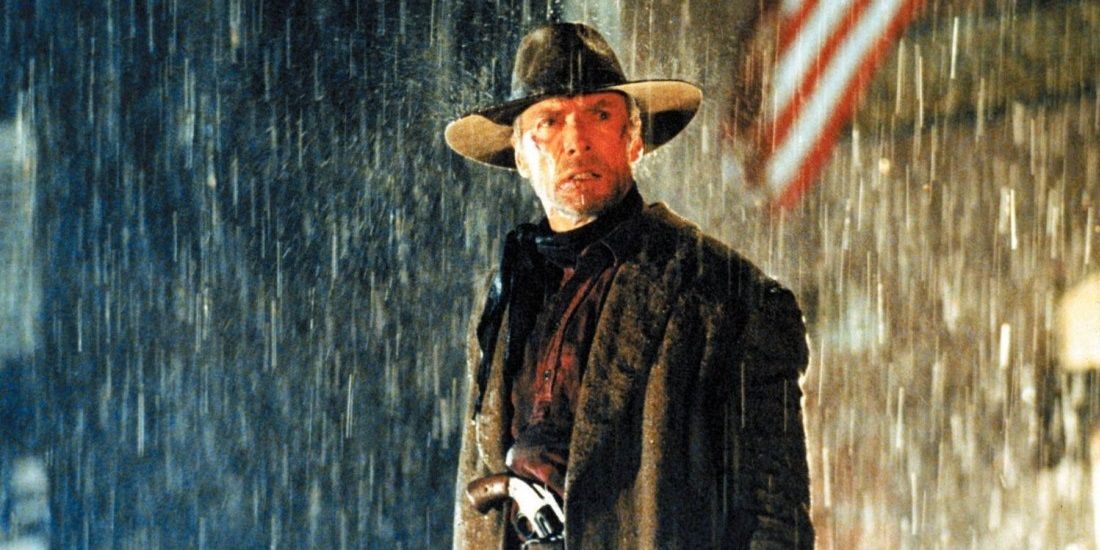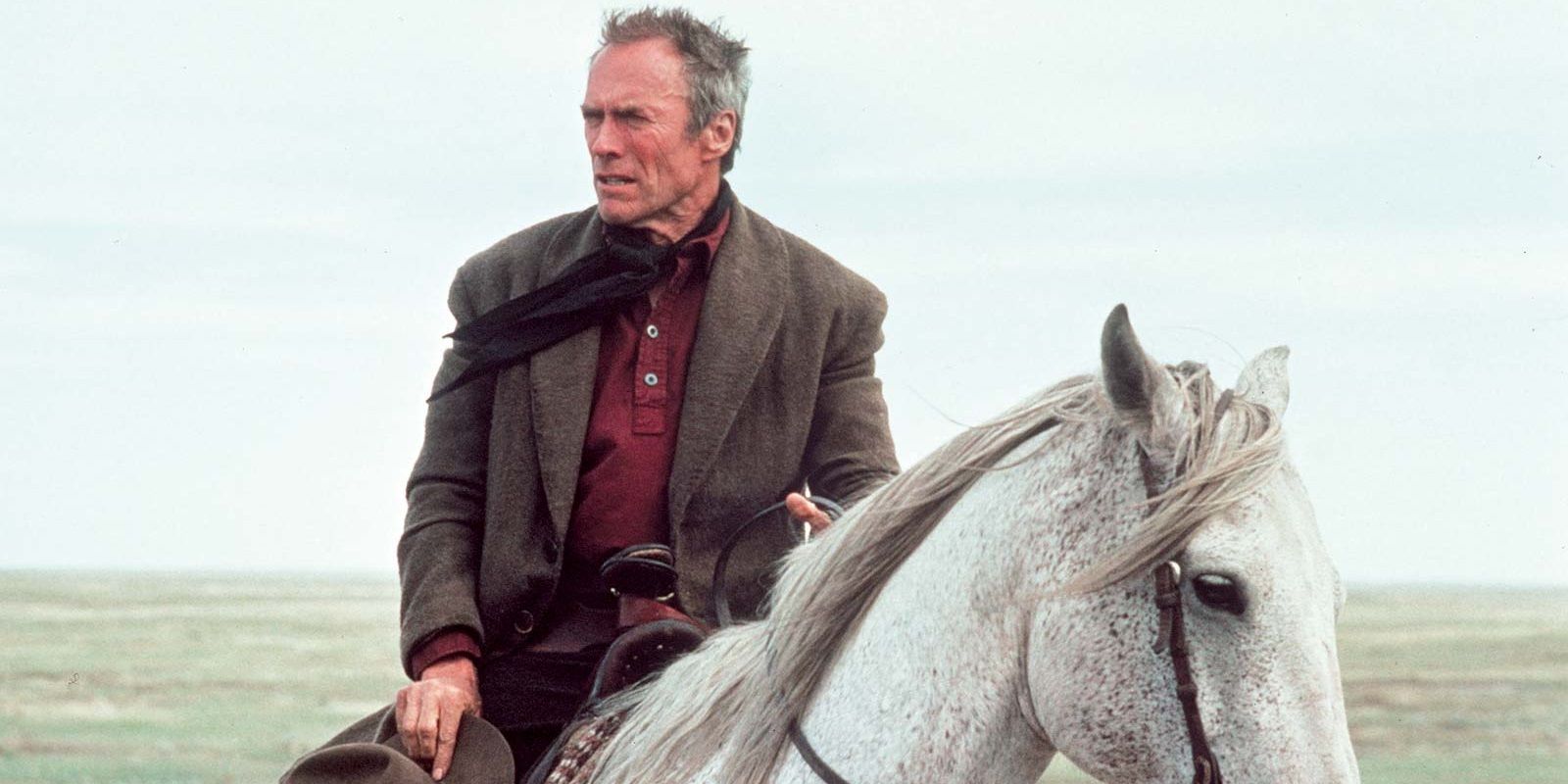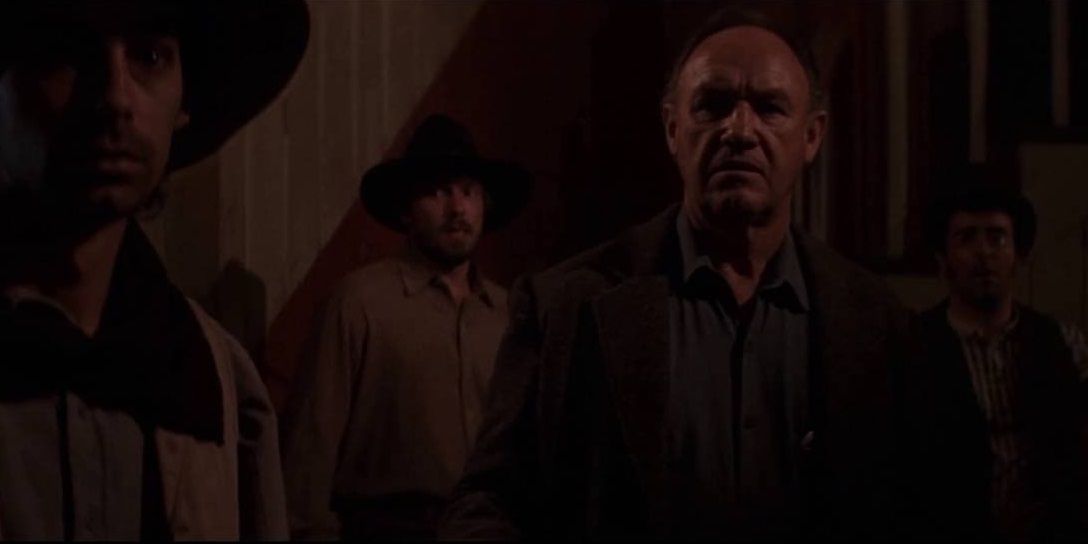In order to avoid ever repeating himself, Clint Eastwood decided to retire from the western genre after directing, producing and starring in Unforgiven, and it ended up being one heck of a swansong. The story of William Munny’s reluctant return to gunslinging in the wake of a heinous, unpunished attack on a prostitute was the perfect farewell to the outdated western mythos.
What makes Unforgiven the ultimate revisionist western is that, in addition to deconstructing the myths that made audiences disillusioned with westerns in the first place, it also makes a strong case in their favor and leaves the viewer to make up their own mind.
Deconstruction: Will Munny’s Dark Backstory
The traditional western revolves around clear-cut black-and-white heroes and villains. A lawman takes down a criminal, or a marshal catches a fugitive. Unforgiven certainly has a villain that’s easy to hate, because he carves up an innocent woman’s face in the opening scene.
But it also has a hero who’s difficult to root for. When we meet Will Munny, he’s a family man with a pig farm. However, David Webb Peoples’ script is filled with constant reminders that Munny has a very dark, ugly backstory.
Celebration: One Last Job
A famed gunfighter locking and loading for one last job has been the set-up in a ton of westerns. This trope can be seen in The Shootist, The Wild Bunch, Once Upon a Texas Train, I Shot Jesse James — the list goes on.
As usual, the gunslinger in Unforgiven is reluctant to hop back into action, but once he’s gotten back into the swing of things, he finds that killing is like riding a bike.
Deconstruction: The Schofield Kid’s Cowardice
Throughout the first and second acts of Unforgiven, the Schofield Kid boasts about how many men he’s killed and that he’s a badass outlaw who’s feared across the frontier for his sharpshooting and remorselessness. However, when Munny sends him to shoot Quick Mike in the outhouse, he freezes. He eventually pulls the trigger but later regrets it.
The Kid breaks down to Munny, admits that he’d never killed anyone before, and vows to never take another life. This is a poignant subversion to the usual cold-blooded murder found in westerns.
Celebration: Revenge
There’s something very cathartic about watching revenge plots play out on the big screen. Quentin Tarantino has made a lucrative career out of it. Revenge has always been essential to the western genre, particularly in spaghetti westerns, and Unforgiven has vengeance in spades.
First, Munny and the Schofield Kid avenge the knife attack on Delilah by killing the duo who did it. Then, Munny returns to town, finds his friend has been executed, and avenges him, too.
Deconstruction: The Honor Of Prostitutes
The classic westerns from the ‘30s to the ‘60s tended to paint prostitutes in a negative light. If sex work wasn’t depicted in a condescending way, then its depiction was ambivalent, but it was never positive.
In Unforgiven, the heroes’ entire quest is carried out in the name of a prostitute’s honor, and a $1,000 reward is offered to avenge her. It’s one of the few westerns to depict sex workers as people.
Celebration: Leone References
Clint Eastwood dedicated Unforgiven to the memory of Sergio Leone and Don Siegel, directors with whom he worked extensively and who mentored him as a filmmaker. Unforgiven has often been compared to Leone’s dark, edgy spaghetti westerns.
Eastwood has even said that Will Munny is the character he believes the Man with No Name would’ve become years after the events of the Dollars trilogy.
Deconstruction: Little Bill’s Cruelty
Usually, the sheriffs in western movies are clean-cut heroic figures who do the right thing, thwarting bad guys without using excessive force. Gene Hackman’s role as “Little Bill” Daggett is an interesting counterpoint to characters like Will Kane.
He governs his town with cruelty and fear. He lets the perpetrators of the inciting incident off the hook with virtually no comeuppance and tries to goad English Bob into a gunfight in the jailhouse.
Celebration: Bittersweet Ending
The saloon showdown in Unforgiven gives it one of the greatest final scenes in the whole western genre. Like many of the great western endings, from Shane to The Searchers, Unforgiven’s ending is bittersweet.
Munny survives the shootout and returns to his family, having wiped out the corrupt lawmen of Big Whiskey, but Ned was killed and Munny learned some hard truths about himself along the way.
Deconstruction: Munny’s Redemption Doesn’t Stick
By the end of Unforgiven, Munny is back in killing mode. From the offset, he spends the movie reflecting on his past and trying to figure out if he can find peace at the tail end of a lifetime of ruthless violence.
However, when he finds that his best friend has been murdered, he goes on a killing spree to exact revenge. Like Shane, Unforgiven determines that it’s impossible to outrun the past.
Celebration: Justice Is Served
The final scene of Unforgiven is bleak, and Munny loses a lot along the way, but justice is ultimately served as the former gunslinger wipes out every bad guy in town and swears further vengeance if his best friend isn’t given a proper burial.
At the end of the movie, it’s revealed that Munny and his kids went on to live a happy, peaceful life. True justice would’ve seen Munny facing retribution, too, but he ends up the hero.

